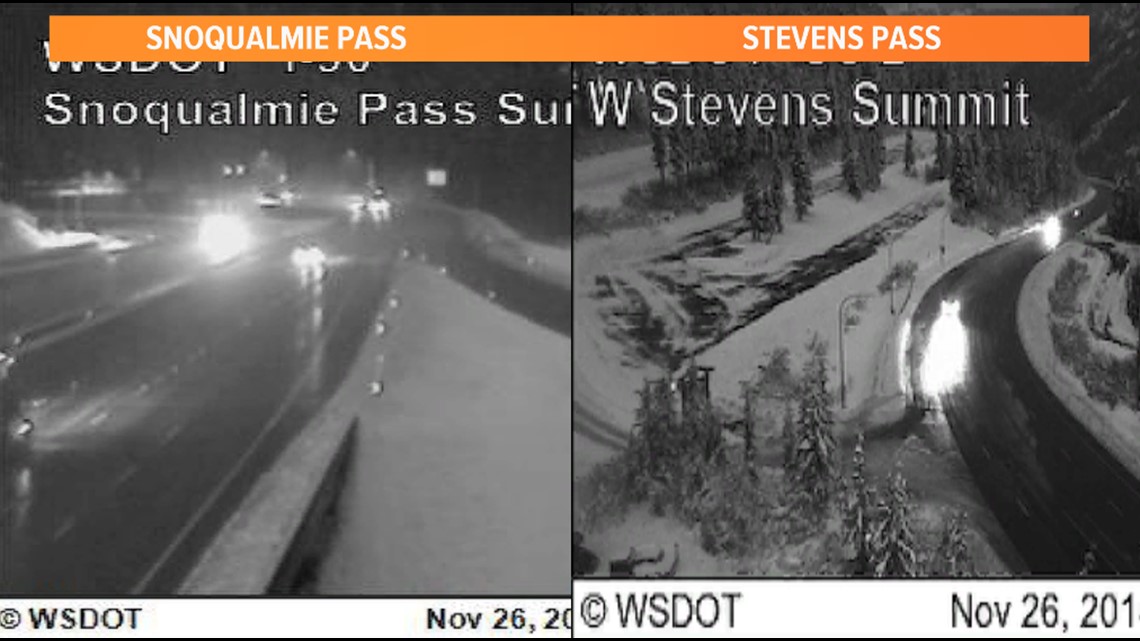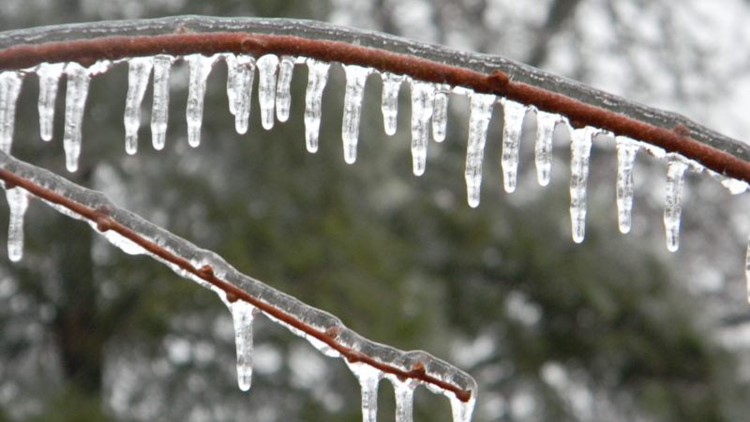Freezing rain is actually liquid water that is colder than freezing, called supercooled water. When supercooled water hits a hard surface, such as roads, cars, or trees, it freezes producing a thin layer of ice.
This can create hazardous conditions on the roads.
How does this happen? We need rain falling through a layer of sub-freezing air right near the ground with a layer of above-freezing air above.
The mountains can create these conditions.
Think of the Cascades like a dam, a barrier separating colder air in eastern Washington from the warmer, wetter air further west. Breaks in the dam, such as mountain passes, allow colder air to leak in making for localized areas of sub-freezing temperatures. Rain falls through this layer and generates freezing rain.


Luckily, these conditions only lasted for a few hours Monday morning. Warmer air eventually will overcome the colder air, and the freezing rain will just end up being regular old rain by this afternoon.



